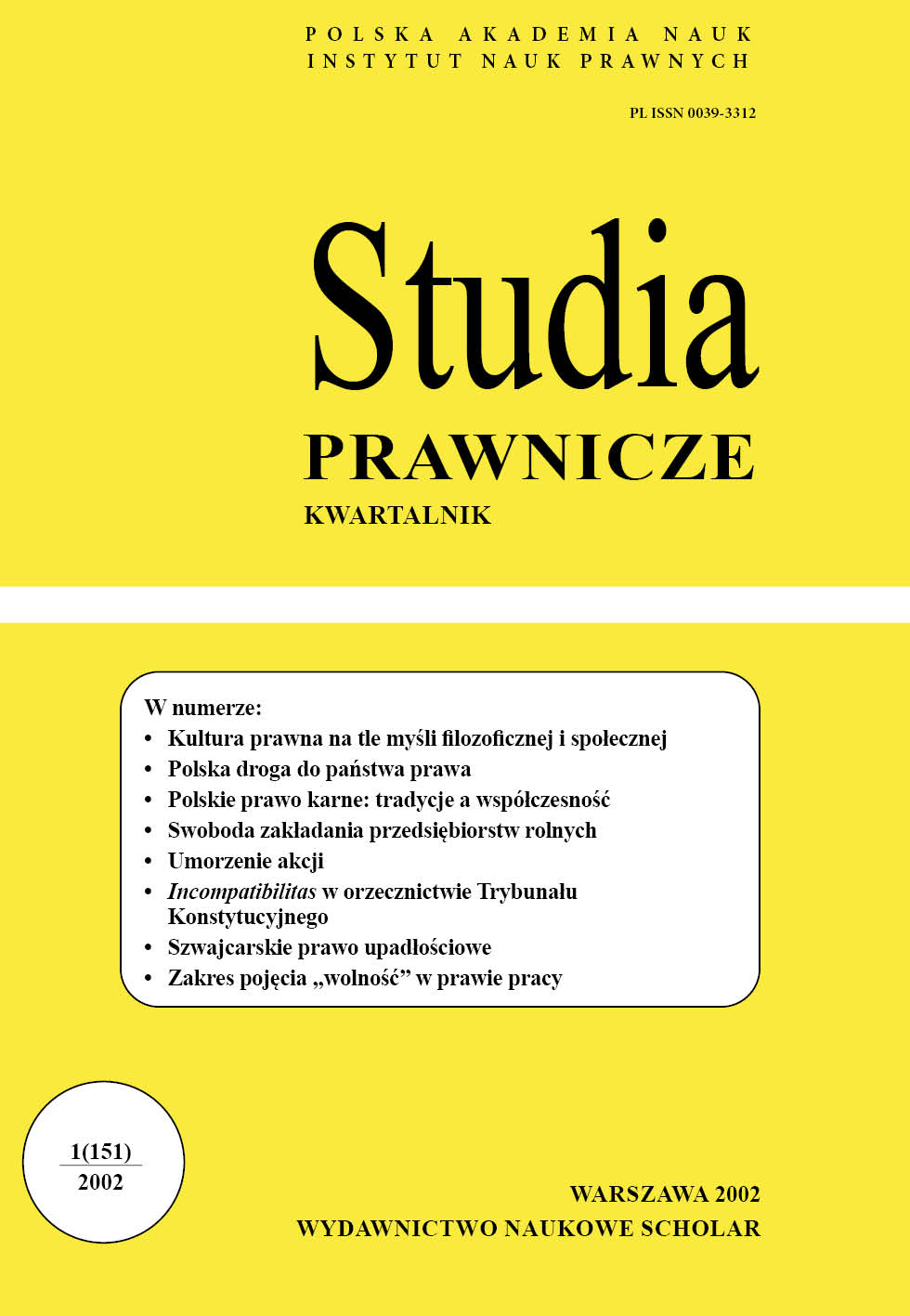Umorzenie akcji - rys porównawczy
Redemption of shares - a legal and comparative overview
Author(s): Tomasz SójkaSubject(s): Law, Constitution, Jurisprudence
Published by: Instytut Nauk Prawnych PAN
Keywords: annulment of securities; comparative law; Commercial Companies Code; corporate law; seed capital
Summary/Abstract: Voluntary redemption is construed as redemption 'with the consent of the shareholder by way of acquisition by the company'. Compulsory redemption, on the other hand, is understood as redemption ‘without the shareholder’s consent’ (Article 359 §1 CCPC). In my view, this is a dichotomous division of all share redemption cases. Thus, either the share redemption in question has the feature of voluntary redemption, namely that it occurs ‘with the consent of the shareholder by way of acquisition by the company’, or it does not have this feature and is then a ‘compulsory redemption’.The conditions for the redemption of shares will include, for example, the ‘prerequisites and procedure for share redemption’ (Article 359 § 1 sentence3 CCPC). With regard to the compulsory share redemption, the specification of these two conditions in the articles of association is mandatory (Article 359 § 1 sentence3 CCPC). Redemption terms may also include the determination of the consideration to be paid for redeemed shares.The scope of the ‘voluntary redemption’ concept within the meaning of Article 359 § 1 CCPC does not include each and every share redemption to which the shareholder agrees in one way or another, but only those that take place ‘with the consent of the shareholder by way of acquisition by the company’. This does mean a consent expressed in any way, but consent expressed as part of the legal act by which the company acquires the shares.Share acquisition for redemption is one of the exceptions to the general prohibition on the acquisition of equity shares (Article 362 § 1 in principio in conjunction with Article 362 § 1(5) CCPC). It should be assumed that, unless the articles of association provide otherwise, the management board does not need any special authorisation from the general meeting to acquire equity shares for redemption.In relation to the acquisition of equity shares for redemption, the following apply: the norms prescribing the notification of reaching or exceeding the threshold of 5% or 10% of the share in the total number of votes (Article 147(1) of the Public Trading in Securities Act (PTSA)), the norms prescribing the acquisition of shares by means of a public call for shares, with the intention to acquire, within less than 90 days, at least 10% of the share in the total number of votes (Article 151(1) of PTSA), and the norms prohibiting the manipulation of exchange rates when acquiring equity shares (Article 177(1) of PTSA).The Code of Commercial Partnerships and Companies defines compulsory redemption as the share redemption without the shareholder’s consent (Article 359 § 1 sentence2 CCPC). However, the definition of compulsory redemption of shares must be interpreted in the context of the definition of voluntary redemption formulated in the same sentence. It is not the absence of any shareholder’s consent, but the absence of consent expressed by way of the acquisition of shares by the company. Thus, an expansive definition of compulsory redemption of shares should state that it is a redemption which takes place without the shareholder's consent expressed as part of the legal act by which the company acquires the shares.The articles of association must expressly authorise the company to redeem compulsorily (Article 304 § 2(3) in conjunction with Article 359 § 1 sentence1 CCPC). In view of the ambiguity of the statutory provision permitting share redemption, it must be assumed, by way of interpretation, that the company is only entitled to perform the basic redemption, namely the voluntary redemption.The legislator does not require that the statutory conditions for the ordinary compulsory redemption of shares specify the consideration for the shares to be redeemed.
Journal: Studia Prawnicze
- Issue Year: 151/2002
- Issue No: 1
- Page Range: 63-104
- Page Count: 42
- Language: Polish

